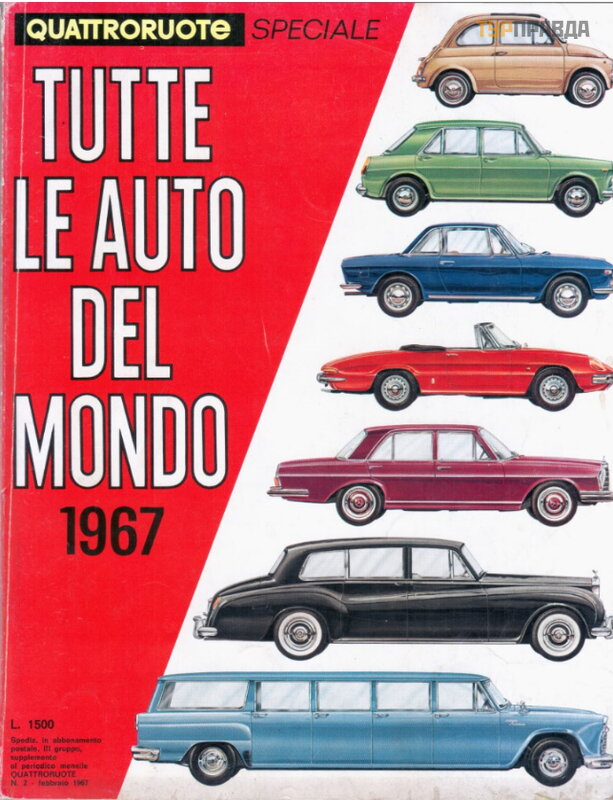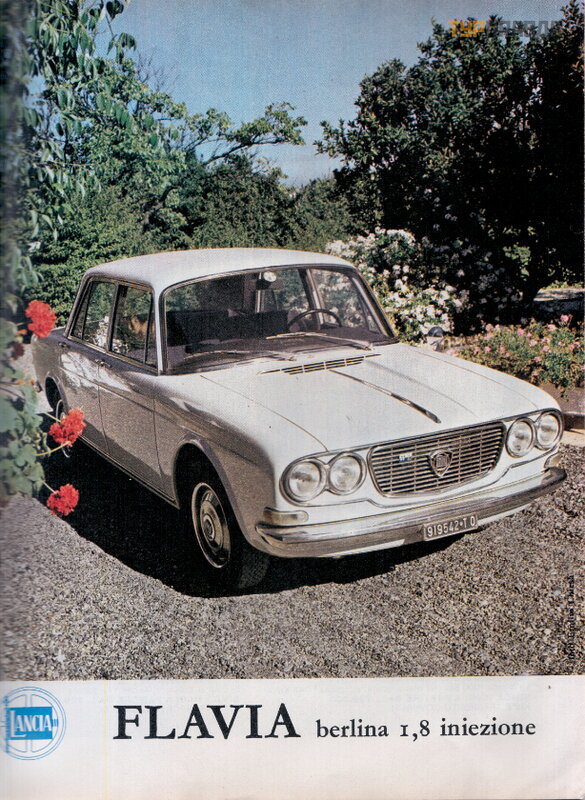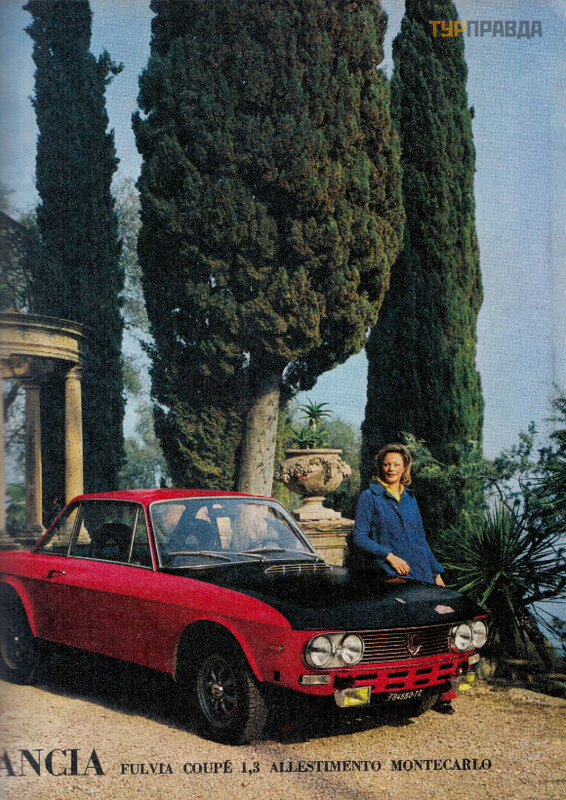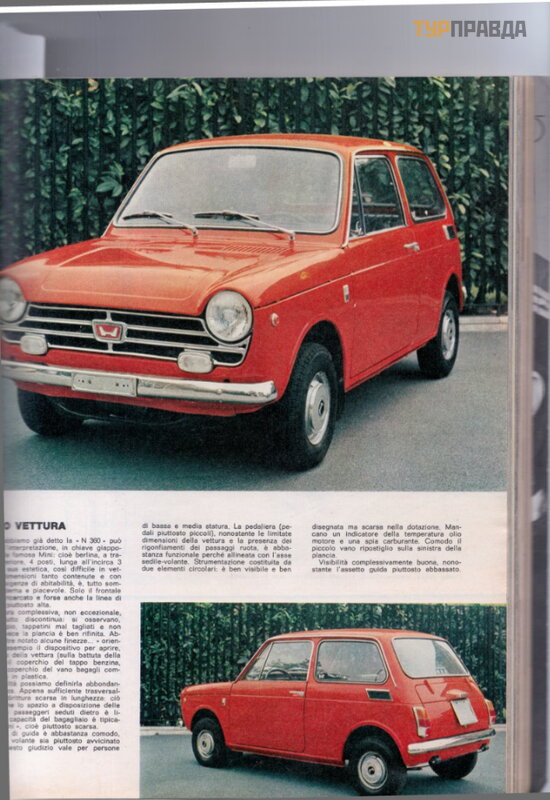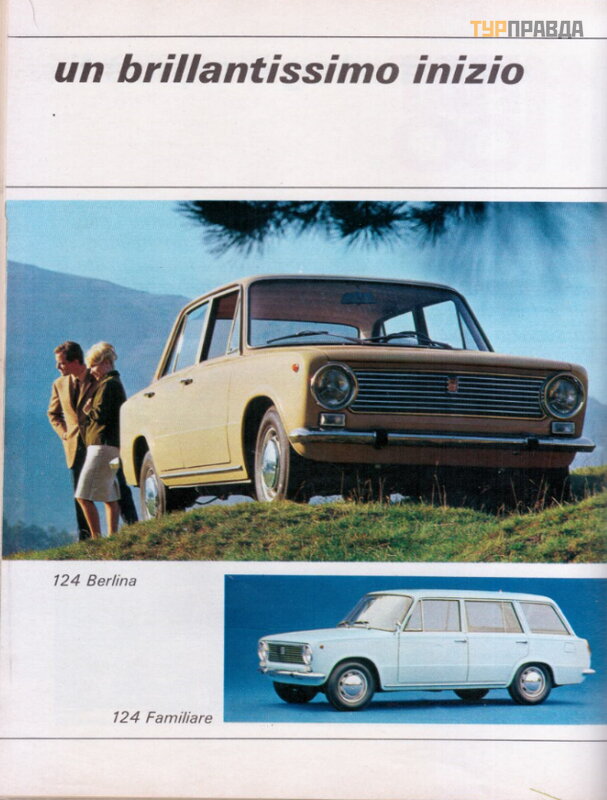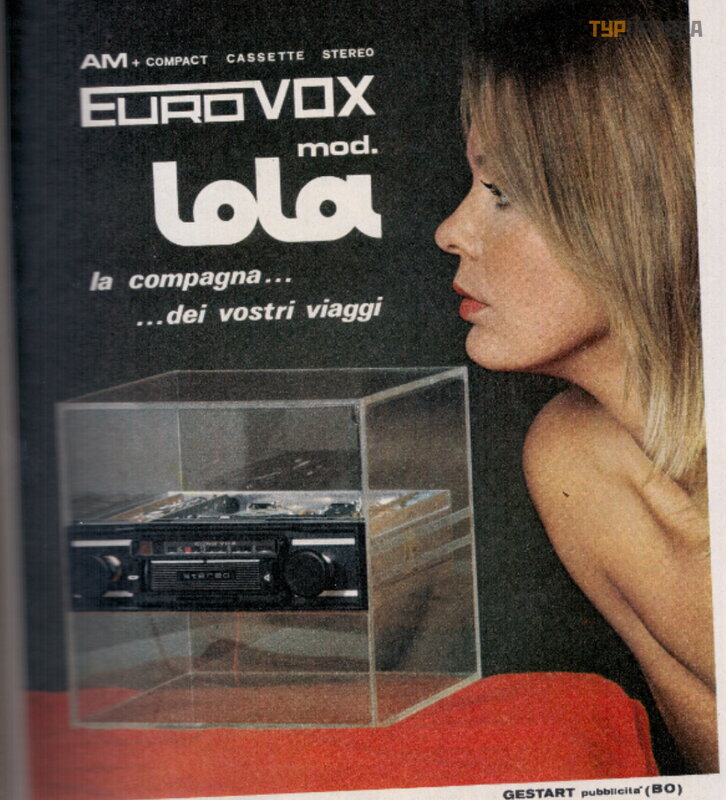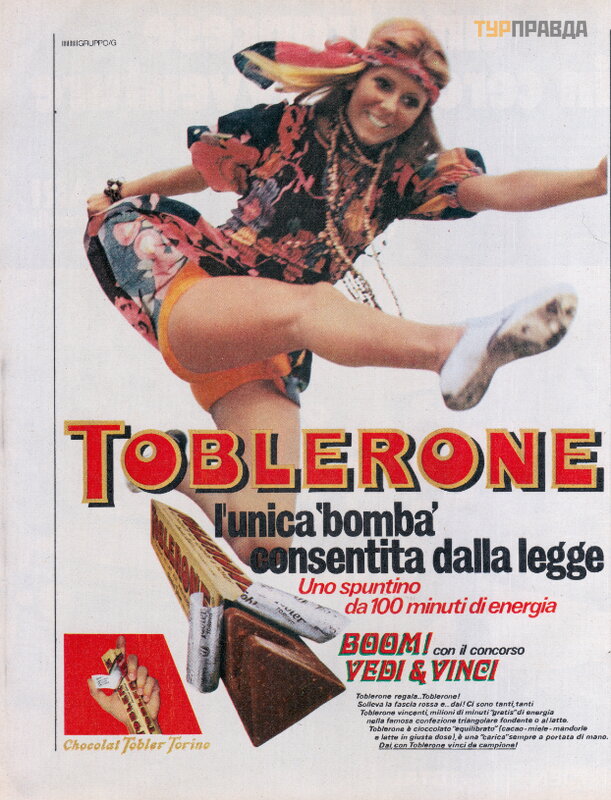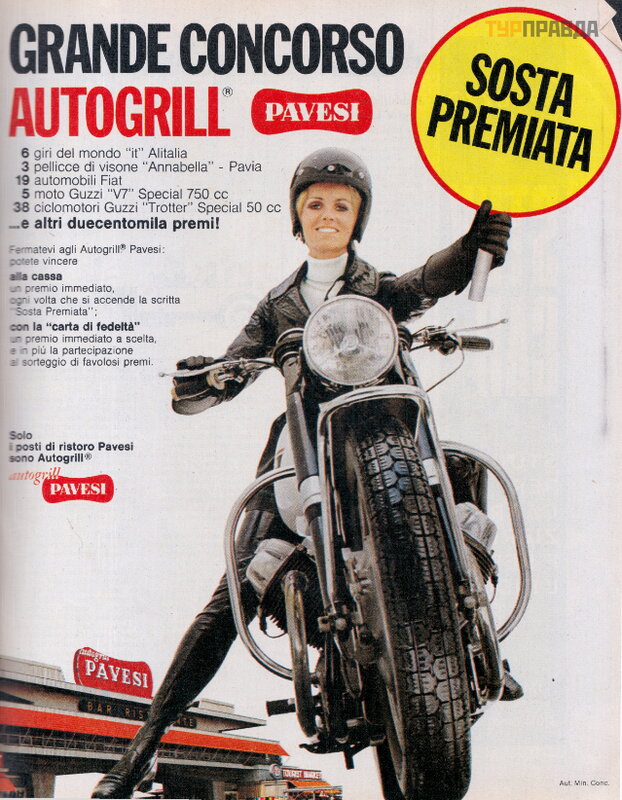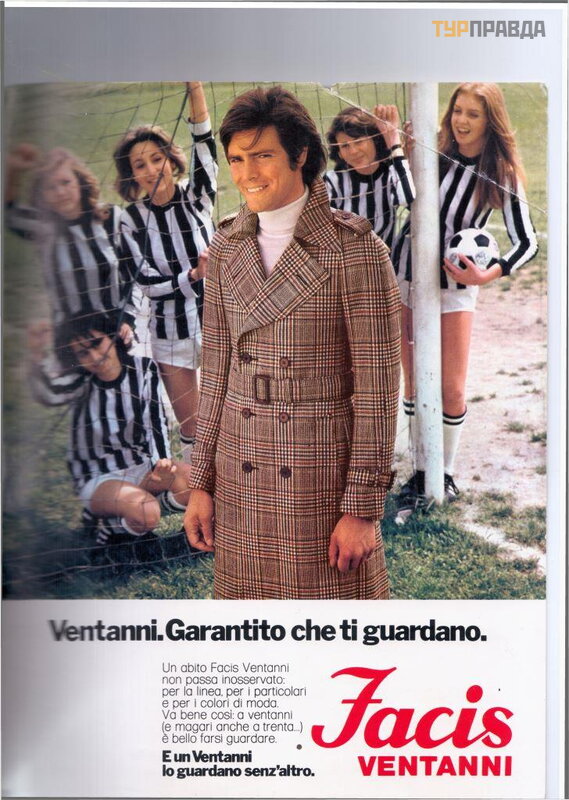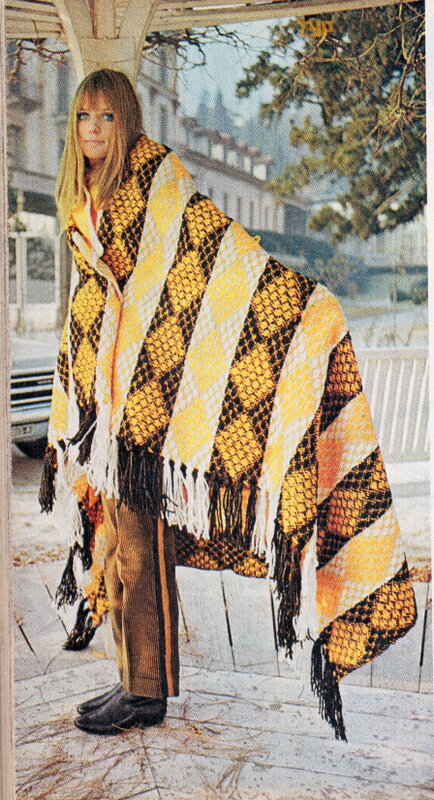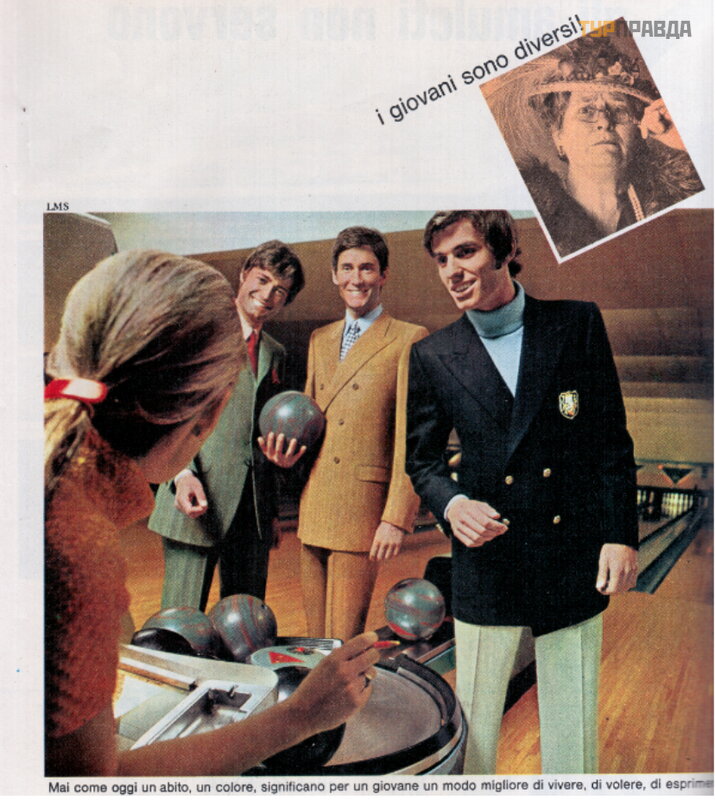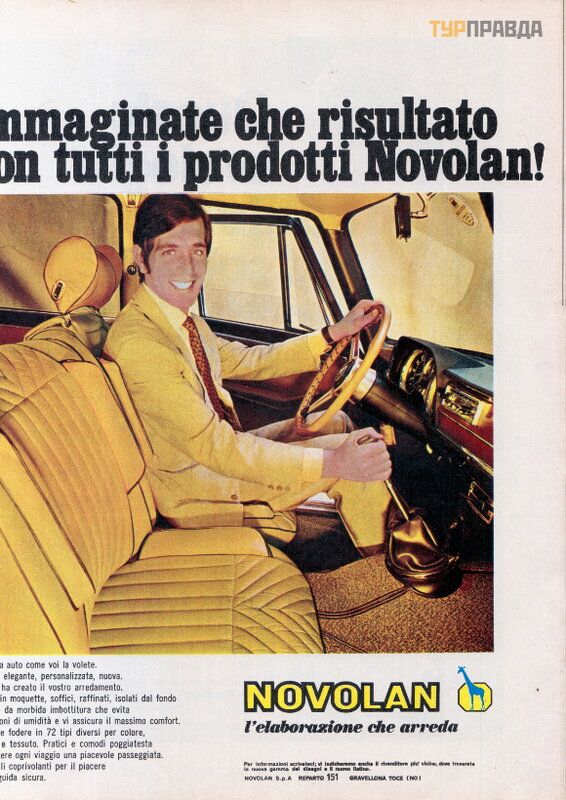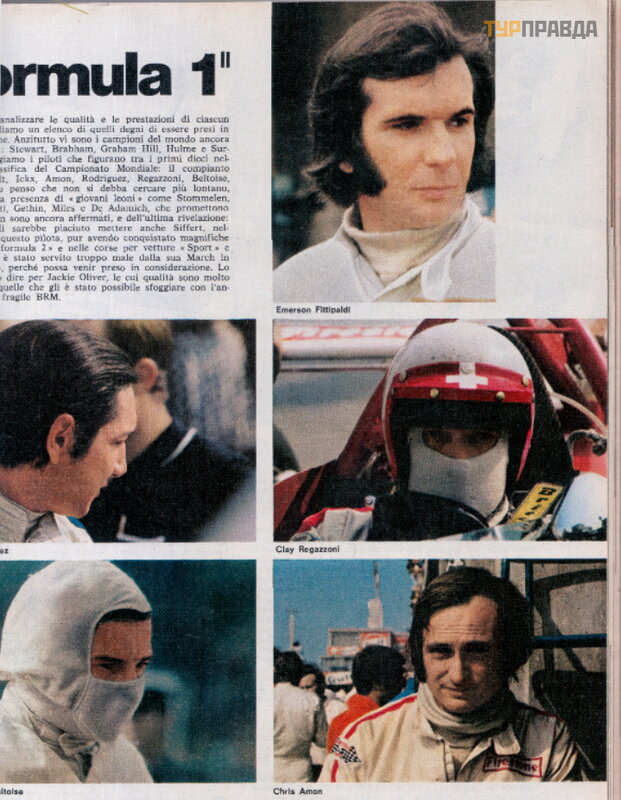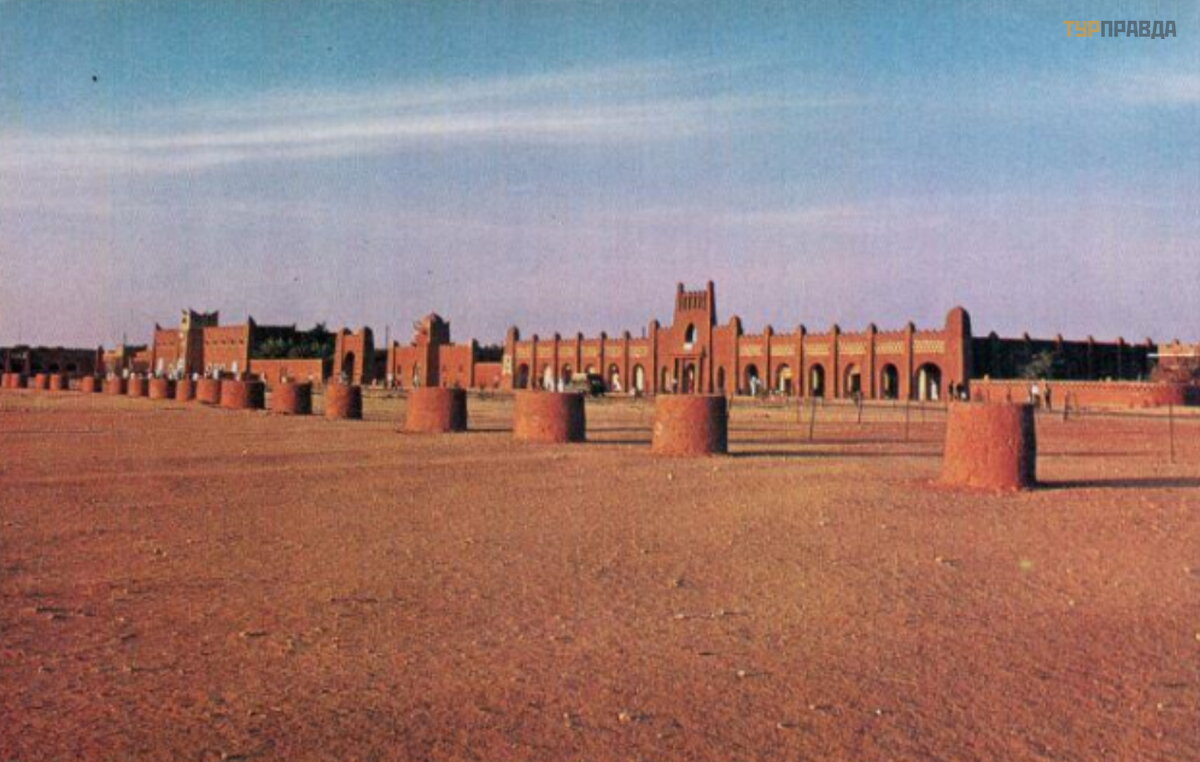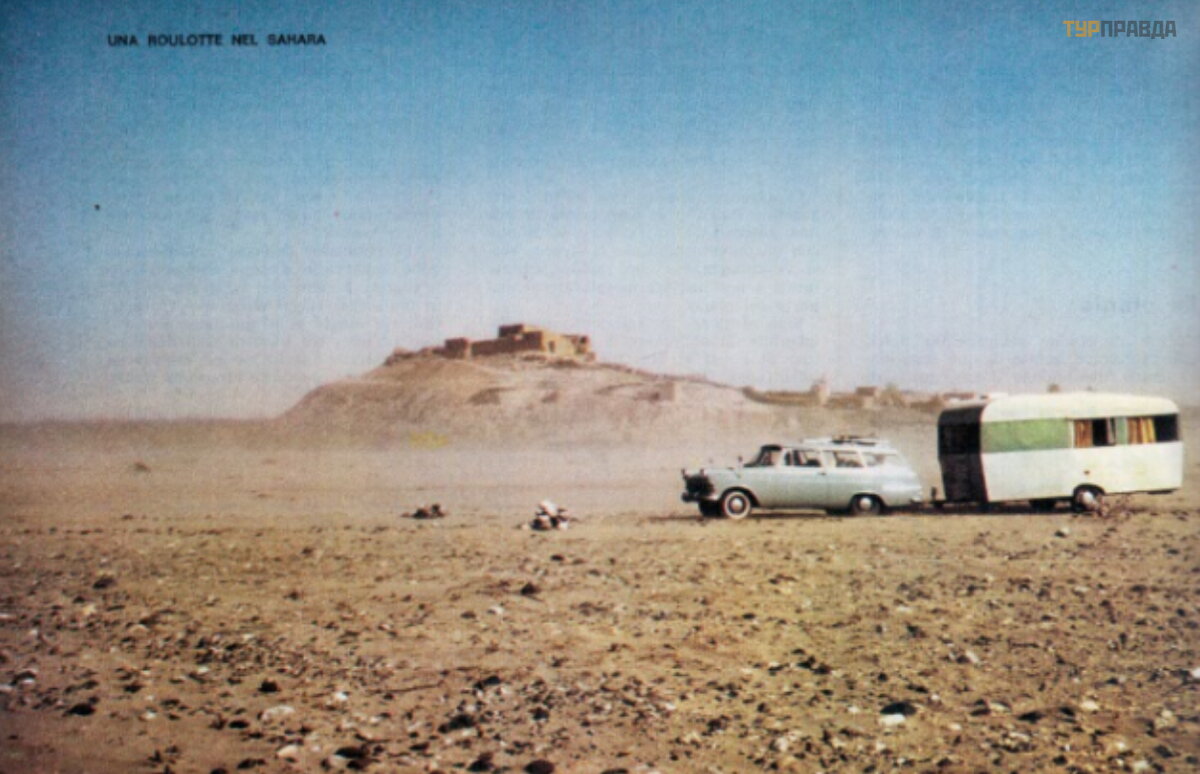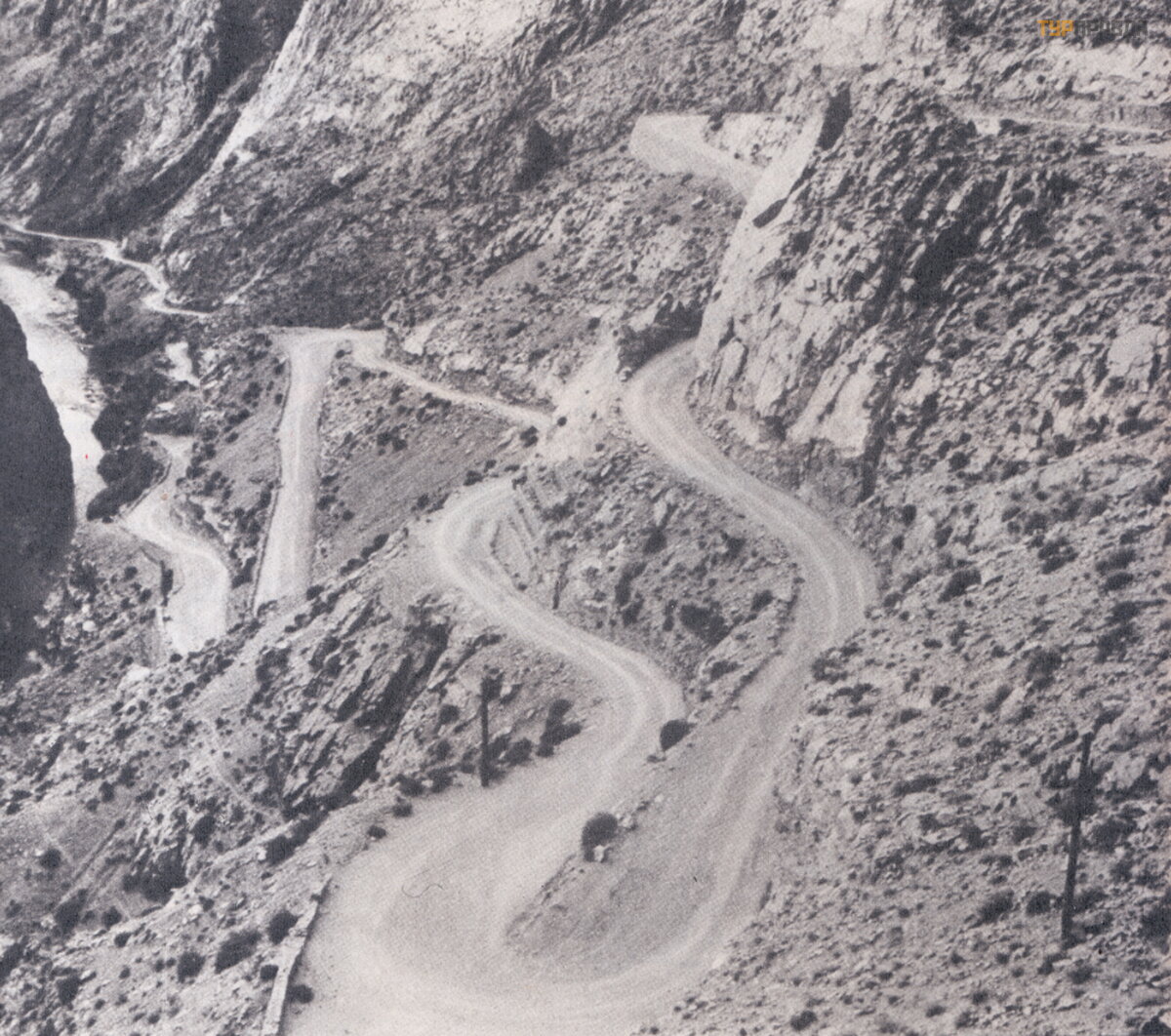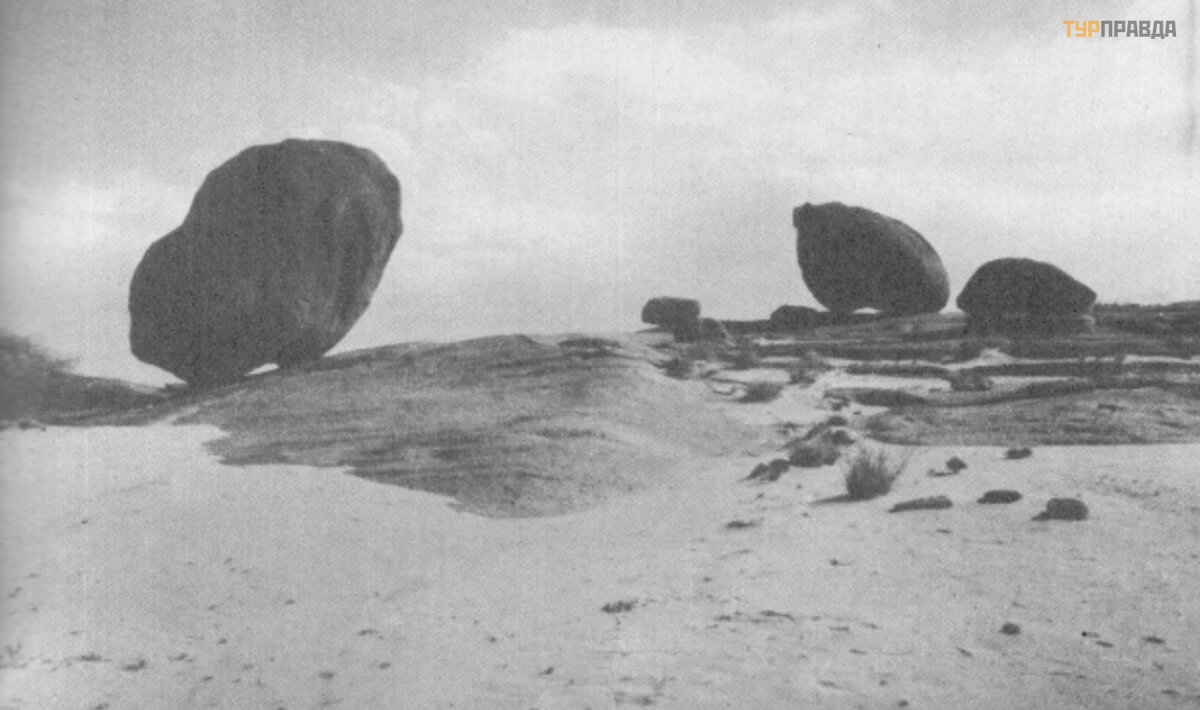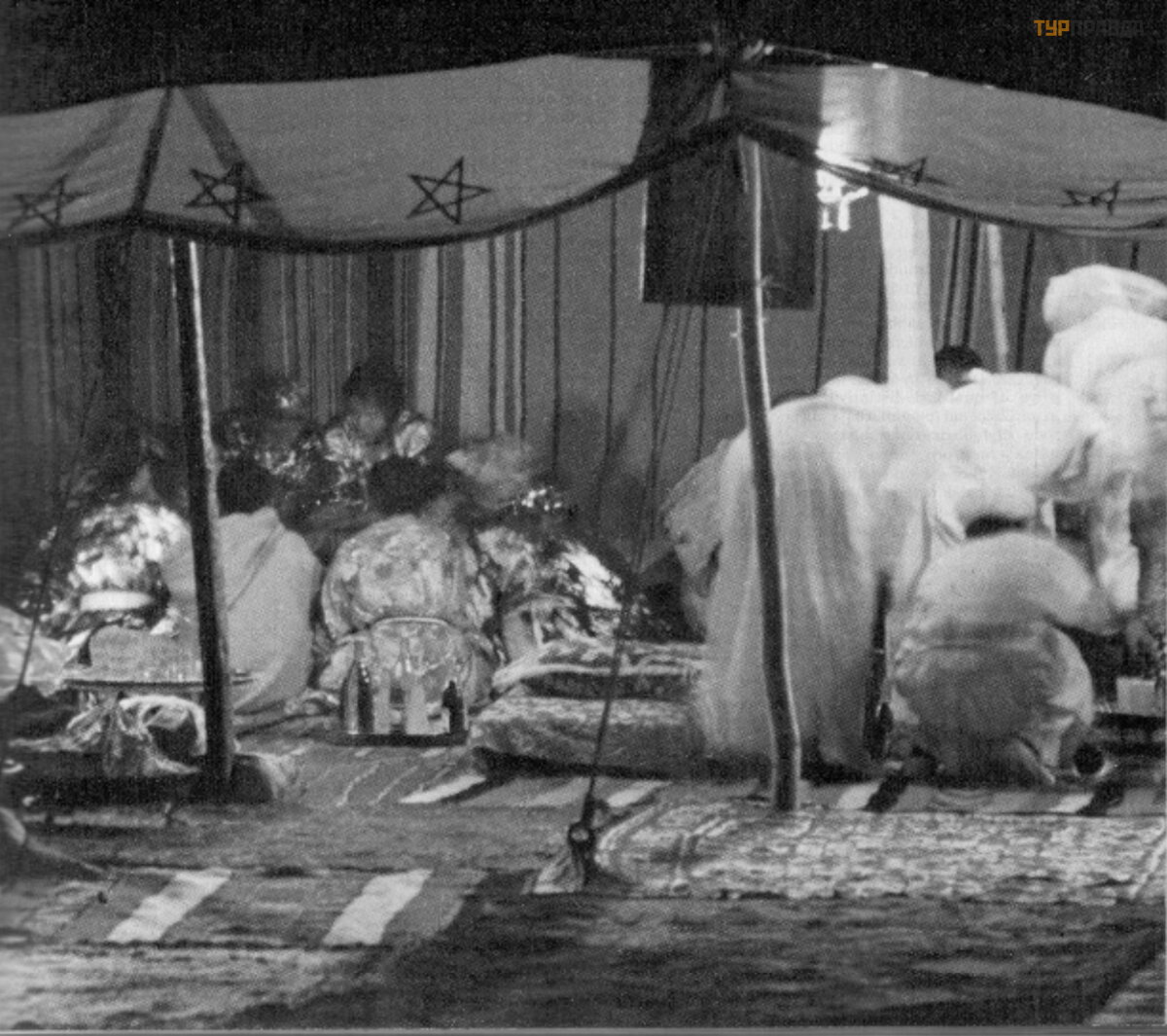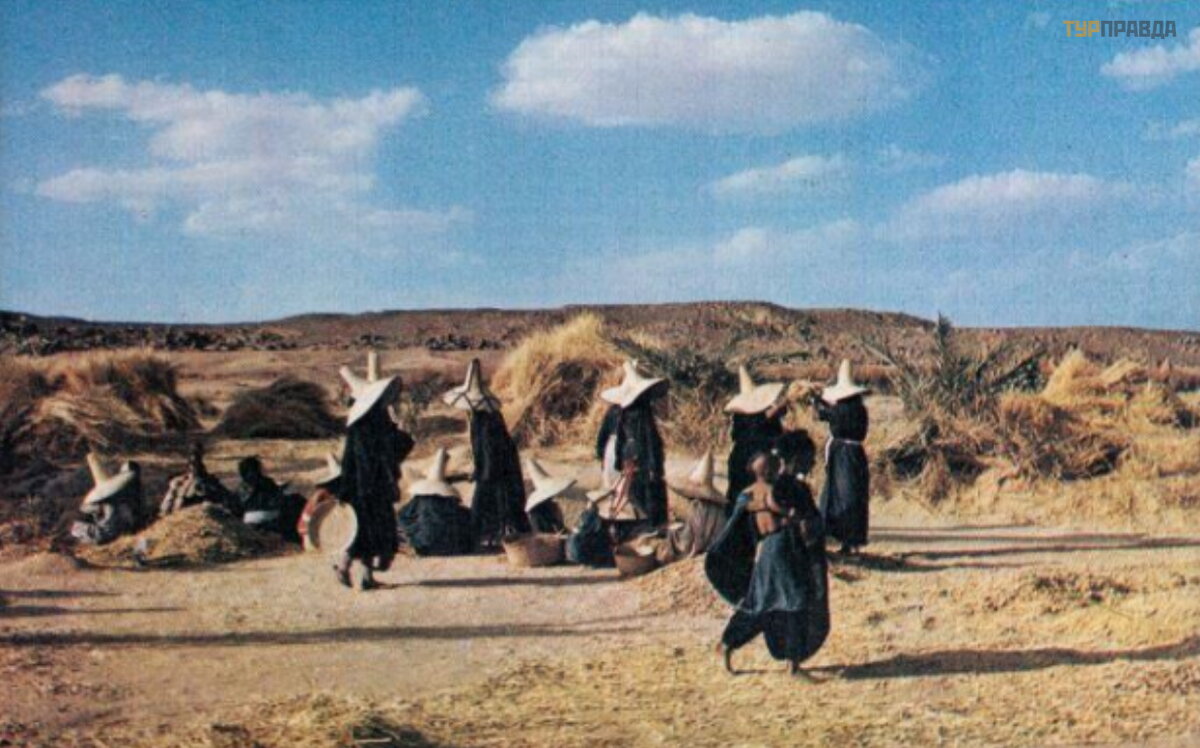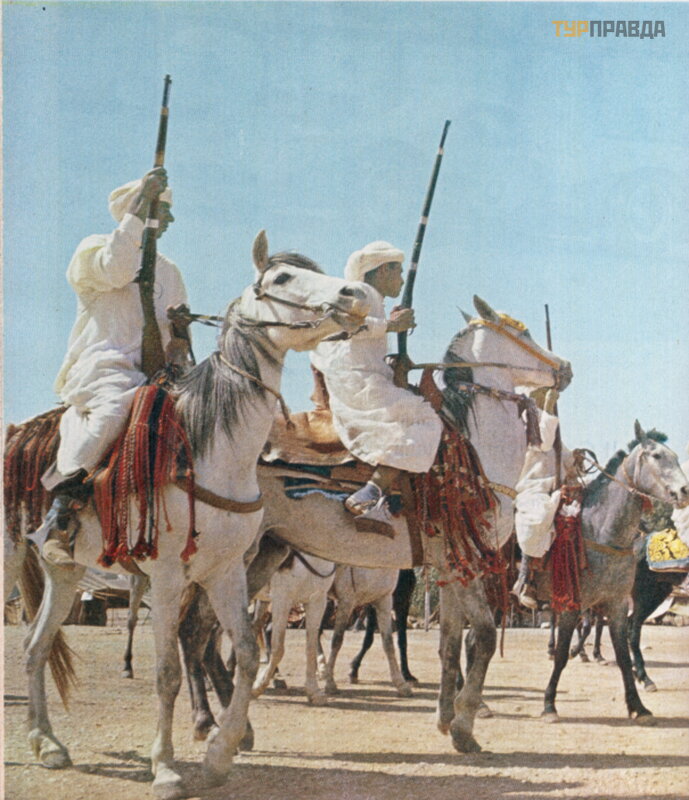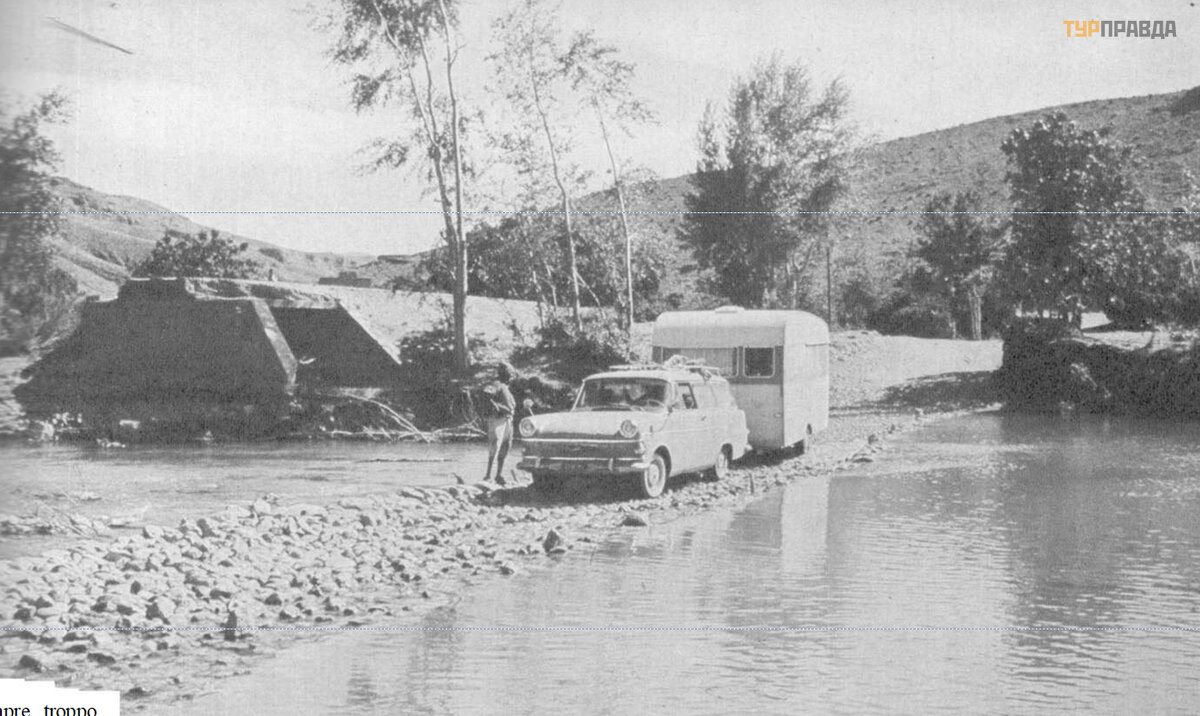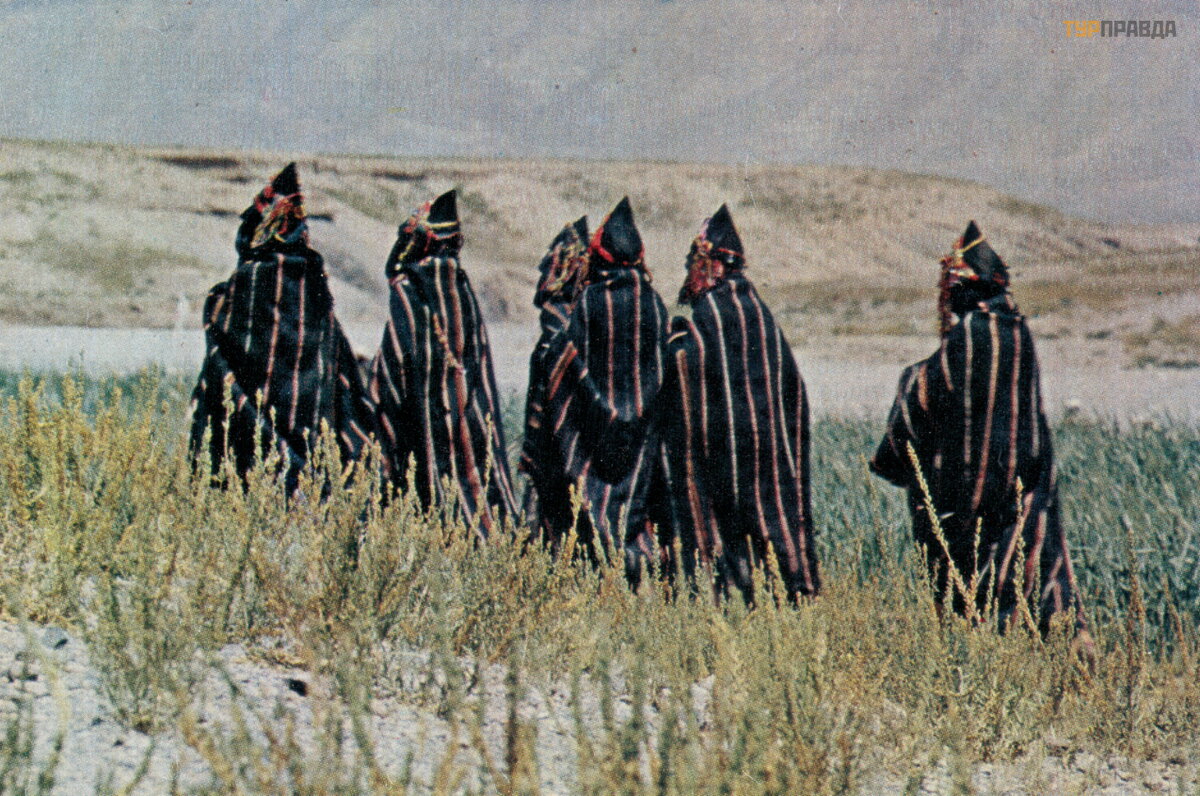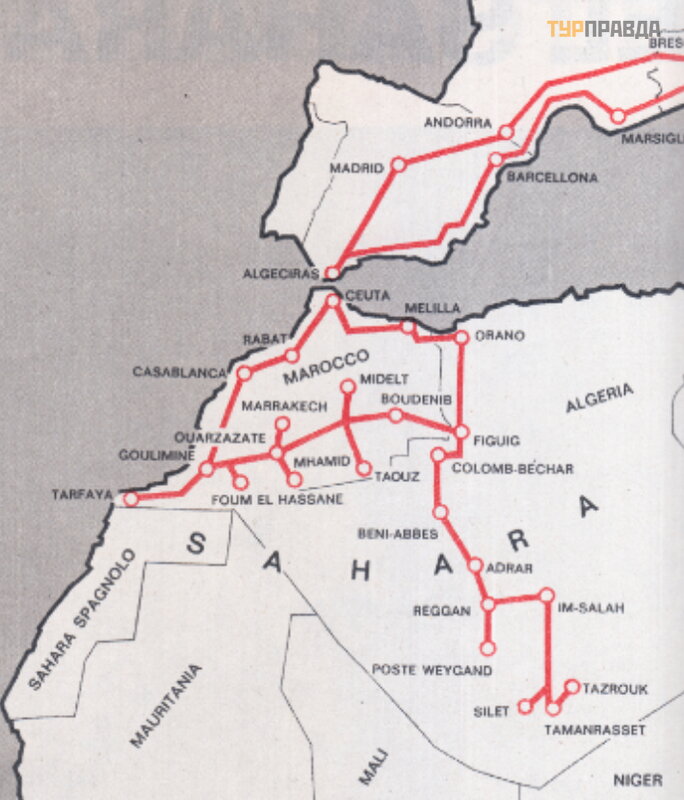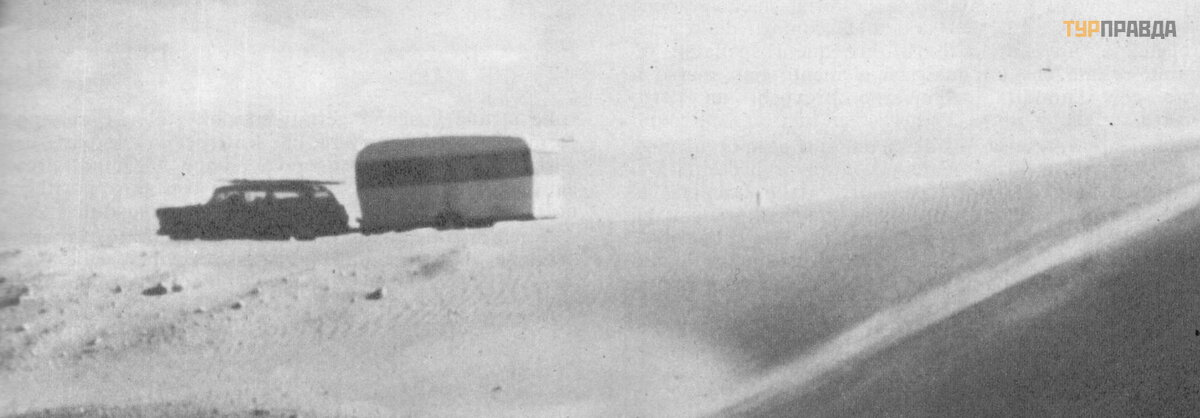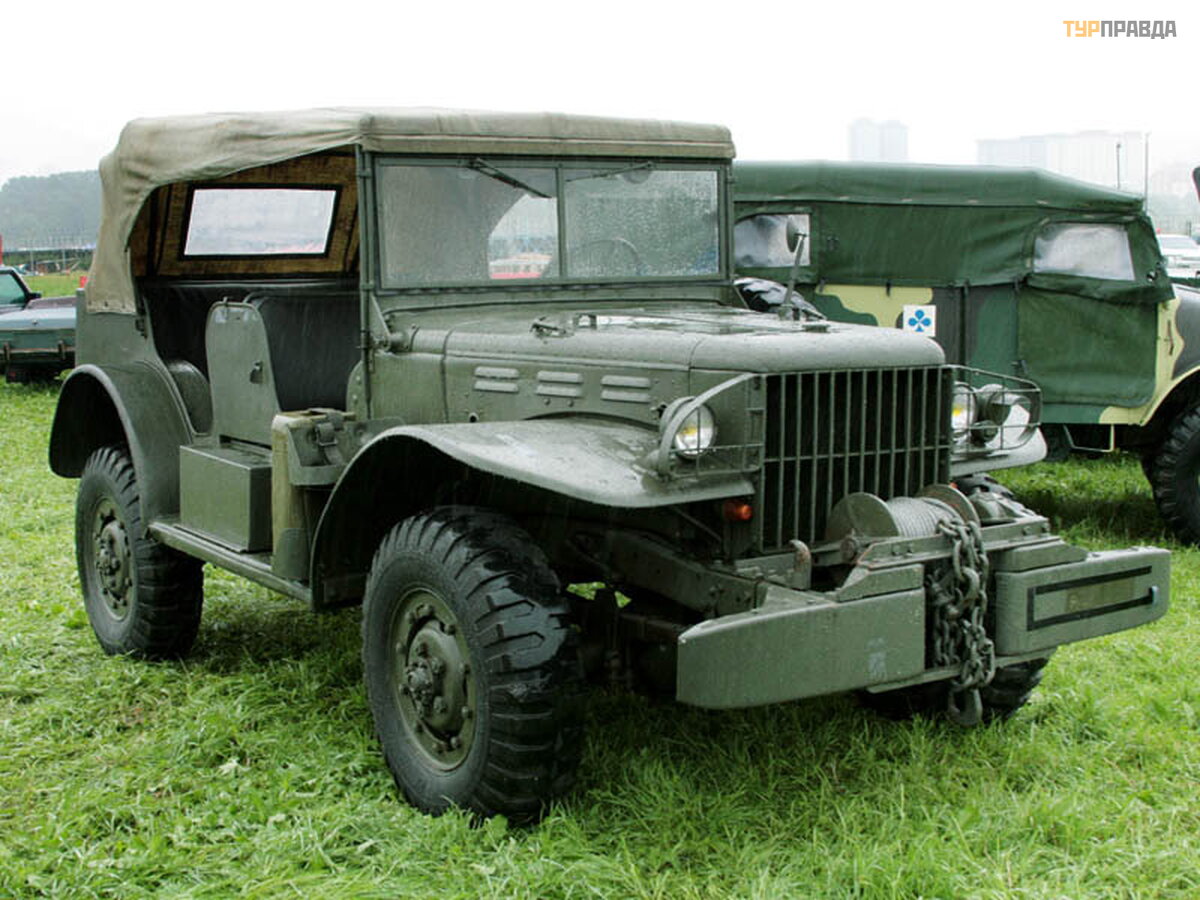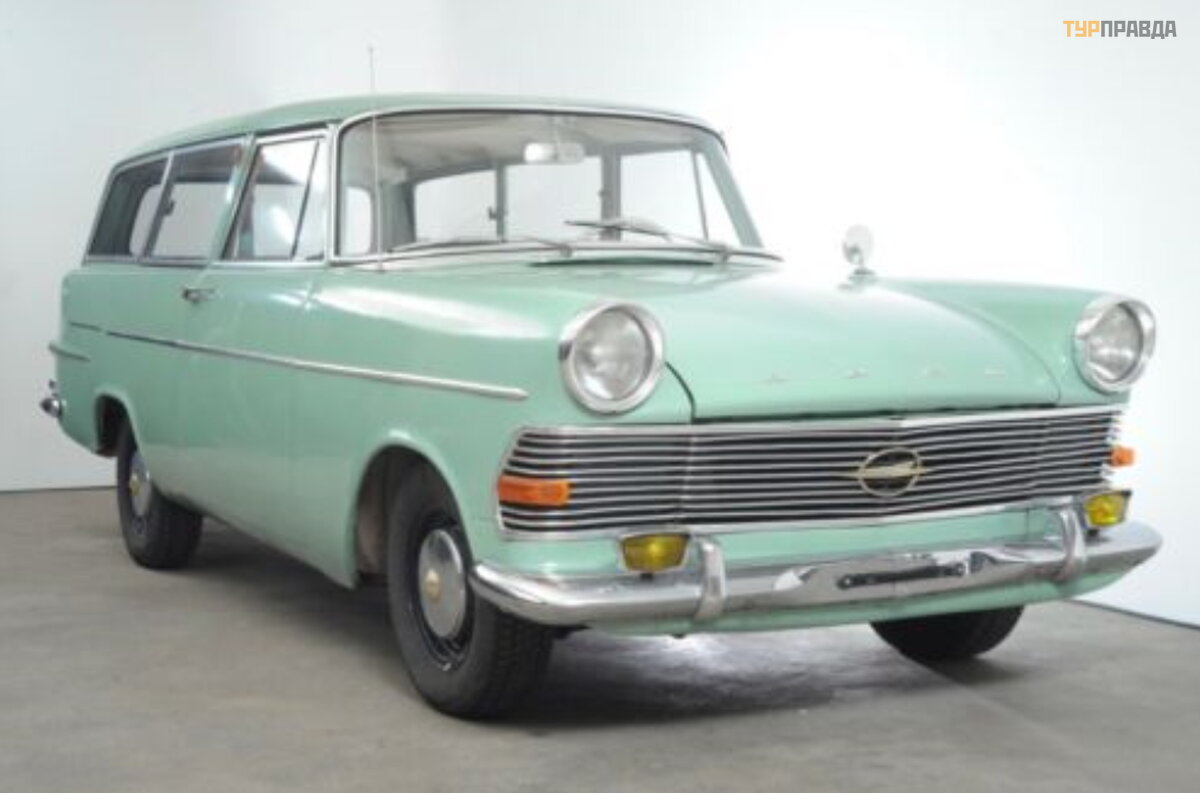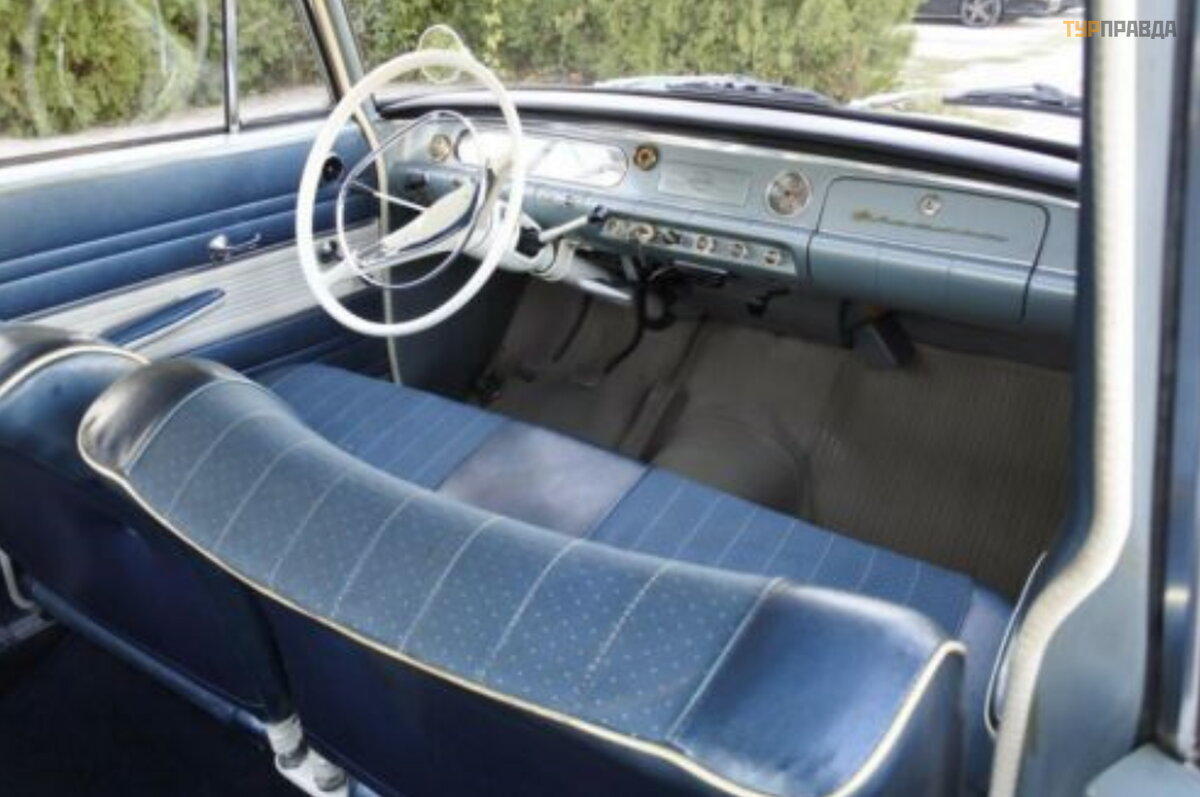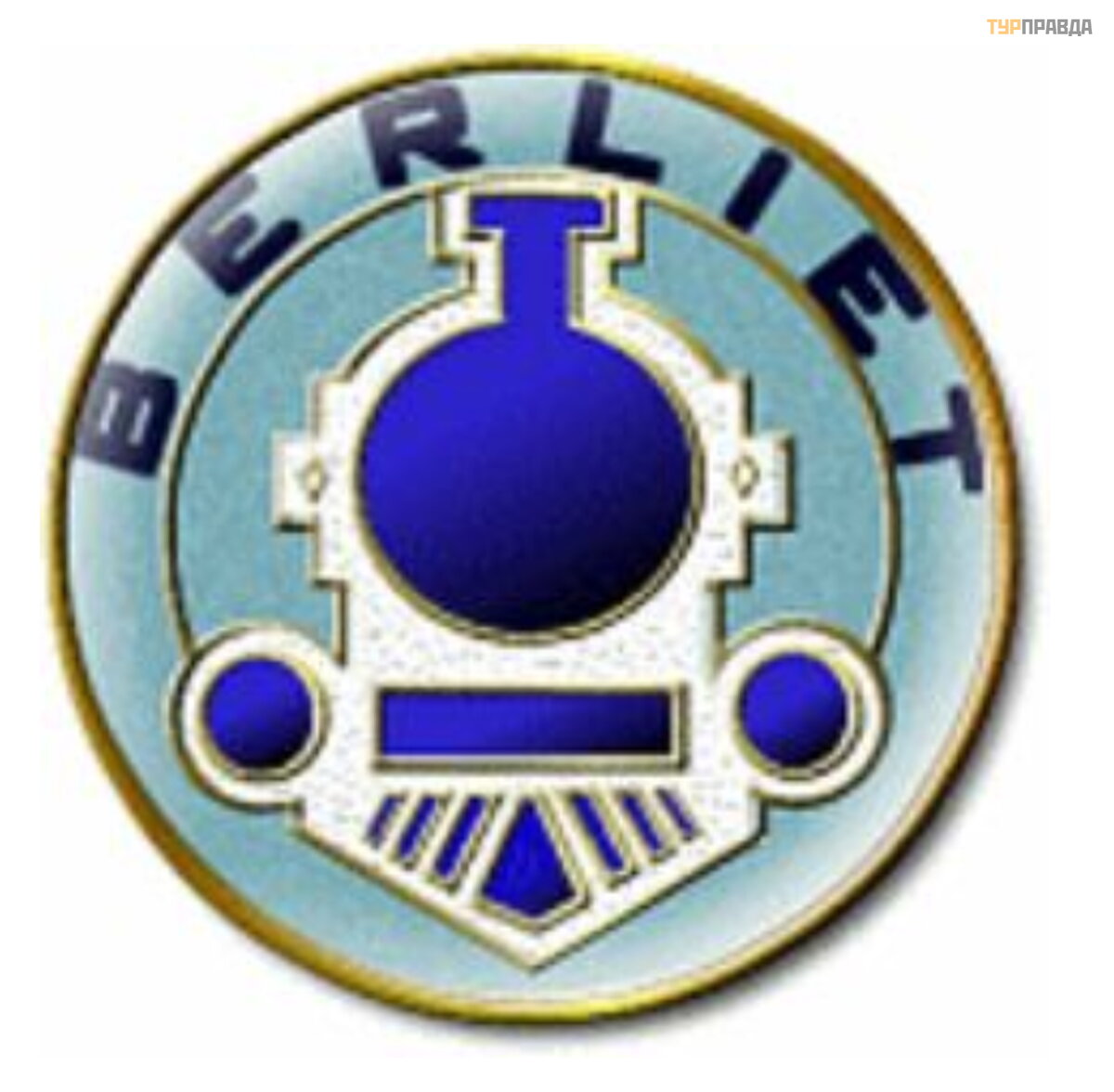Throw back 100 years. Continuation.
After translating the 1929 story https://www.turpravda.com/fr/blog-407222.html , I decided to look for some more stories by Herve Lauvik. And I didn't find it. But quite unexpectedly, I stumbled upon a story, without an author's name, in the November 1967 Quattroruote magazine. The style of writing was very similar to the style of Herve Lauvik. Well, why not? Yes, Quattroruote is an Italian magazine. And the author and his wife left on their journey from Italian Brescia. But the text was clearly written by a Frenchman. So everything is possible. Both now and then, successful elderly French people loved and love to live in inexpensive southern countries. Now it is Spain, Portugal, Greece and a little Turkey. And then, in 1967? Spain was ruled by Franco. An ugly type who beat the Republicans, an ally of Hitler and an extremely unpleasant personality. Portugal. Salazar was in power there. Not Salazar Slytherin - one of the founders of Hogwarts, but Antó nio de Oliveira Salazar. Also uncle is gloomy. Semi-fascist and brutal dictator. Greece. There, the people had just begun to recover from the nightmarish, cannibalistic civil war that began immediately after the Second World War. And, like a cherry on top, in 1967 the Black Colonels came to power. Dementors in their background are just children. What remains? Turkey of the sixties? No. It's Italy. Where the aged Hervé and Emma could settle in their old age. By the way, not so old. According to my estimates, they were 62 - 65 years old in 1967.
What is Quattroruote?
This is a car magazine. Not as pretentious as the "Illustrated Automobile Tourism", but the publication is also worthy, successfully surviving to this day.
There are also ads.
Of course, mostly automotive. Lancia Flavia. Is it really good?
Or take Lancia Fulvia. What cars!!!
The first timid steps of the Japanese automotive industry in the European market. Honda 360. This is in terms of engine size. 360 cu. see. Yes, my simple quadra has a volume of 500 cubic meters. And this is not enough for me.
And here is the Fiat 124. The forerunner of our "Penny". But what are the Italians! Yes, we also loved this car, but it never occurred to us to write "Brillantissimo" about it.
Well, of course there are many other advertisements in the magazine. Tape recorders.
Toblerons.
And everything is fine. Yes girls. Yes, beautiful. But no one considered it sexism then.
Girls on motorcycles.
And, of course, fashion. Men's. What a man! Wow! The girls are delighted with his coat and him.
Female.
And again, male.
And a men's one.
Lots of motorsport.
For those who are in the subject, these names sound like music. Emerson Fittipaldi, Clay Regazzoni, Chris Amon. . . And Pedro Rodriguez. Sensation and hope of Formula 1. Won the first race of the season, making his debut in 1967. This has never happened before. He will die in 4 years without having time to become a champion. . .
Well, it's clear what kind of magazine it is. And there, as well as in the "Illustrated Automobile Tourism", the stories of automobile travelers were placed and are still being placed.
And so.
Throw back 50 years.
(Admins. Everything is legal. There are links to the journal. More than 50 years have passed. The text is not a copy, but the author's processing. You don't have to check. After all, I am an international lawyer and I know what I'm talking about. )
Herve Lauvik (Maybe).
I am an old caravaner in every sense. Caravanning is my passion, my life, my air. Now I will write about how dreams can become a reality and that not all dreams need to be realized. I warn readers in advance that not everyone can repeat my route. And even for those who consider themselves ready for anything, I cannot recommend this route, primarily due to political instability in the countries visited.
On February 24.1967, my lovely wife and I left Brescia for Spain. From Gibraltar we took a ferry to Africa. In Ceuta. It was a very pleasant Africa. The prices for gasoline, groceries, cigarettes and booze are ridiculous. And francs are in use there.
From Ceuta, we drove along a beautiful paved highway towards Agadir. Our goal was the ancient Arab Medina. The road was good. Views of the Atlantic, the smell of salt and plenty of gas stations with cafes and workshops.
. . . They were always and everywhere. They didn't do anything wrong. They didn't stretch out their hands, they didn't beg. But they were always and everywhere !!! ! Nobody could drive them away. Neither I, nor the local respected elders, nor the police. At night they looked into the windows of our caravan, during the day they pushed (just pushed) at the car, and even while driving, I saw two or three boys running after the car. It made me angry.
In Europe, we spent the night in the countryside, in the mountains, on the edge of the road, on the beaches and no one bothered us like that.
From Medina we went to Imsun. It is a tiny village where only a few fishermen live. It was good and calm there. The fishermen did not speak French, but were quite friendly. In the mornings they went out to the ocean in their heavy rowing boats and returned quite quickly with a good catch. Which was shared with us.
In Gulimin, a town with a population of about two thousand inhabitants, the real Sahara begins, and with it our adventurous part of the journey. It is already difficult to buy the usual products here, the temperature is about 40 degrees and then the asphalt ended. Then there is a disgusting country road along which they ride camels and Land Rovers.
The British owners of these Land Rovers tried to mock our Opel and our trailer. Silly chickens! I started dragging a caravan behind a car in those years when they were not yet born and there was no Land Rover even in the spotlights.
We were lucky in Gulimino. We got to some local holiday. The inhabitants of the surrounding villages and the Bedouins gathered here and arranged dances. It was quite an unusual sight. In the evening, by the light of fires, girls and men came out to a small square. The dancers took turns going out into the circle and began a very strange act. Their music was beats on a small drum and countless blows of whips, which almost all men had. And also the dull, monotonous, mournful singing of all the women present.
The dancer in the circle began to squirm and sway her bust. Then she squeezed him with her hands and began to bend, falling back. The whiplashes were getting stronger. Her eyes radiated lust and lust. When the back of her head touched the ground, she let out a moan, her eyes faded, and the next girl came out into the circle. There was so much primitive, animal nature in this Sabbath that now the most provocative shows of the Moulin Rouge seem to me to be matinees of nuns - Carmelites.
In the morning we drove north to Mauritania. The purpose of our trip is rock paintings, which are more than one thousand years old. Jebel Bani has a military base built by the French. There we stopped. Mr. Saibari, an officer who received a military education at the French military academy, welcomes us like old friends. But he does not recommend driving to the rocks in our Opel* and gives us an old but strong Dodge WC-51* and a cheerful foreman as a guard and driver.
The foreman is taking us through a fantastic landscape. Colored stones, white sand. Suddenly, a group of nomads on camels flies to meet us in clouds of dust. A beautiful, unusual sight, but our foreman frowns, slows down and defiantly stands behind a machine gun mounted on a turret. The Bedouins are rapidly disappearing.
When we returned to the fort, our lieutenant gave us plenty of milk in a dirty goatskin bag. And there were a few hairs floating there, but we greedily drank this offering.
This officer's four wives sold us a pair of homemade camel and goat wool blankets, and he sold us an old, slightly rusty, broken Thompson machine gun. He said that the mere sight of him would strike terror into the desert nomads. And the blankets and Tommy Gun were just the thing. I understood. that my Mannlicher with an optical sight is not quite reliable protection against nomadic shepherds.
Oh yeah…. The rock paintings are engraved bulls, antelopes and rhinoceros.
Then we drove towards the Dre oasis. There are quite fertile places here. There are fields of wheat and barley. And then for the first time in my life I saw a bustard. I tried to hunt, but I was prevented by two Berbers who came out of nowhere, came up and started to distract me. We started talking. Their French was quite good. My charming and patient wife and I feel like extreme tourists, but after talking with these people, we realized that this is not the case. These two men were on business in Tindouf. They have already covered about a hundred kilometers and they have another two hundred and fifty left. From the equipment they had a leather skinskin with flour, and in the hands of one was a small teapot, in the hands of the other was an old frying pan. They said it was normal and they would arrive at their destination in 5 days.
When they left, I managed to shoot three bustards and the cook in the nearest oasis prepared for us a wonderful true Moroccan cordon bleu.
The patron of this tribe invited us to hunt mouflons*. Unfortunately, we had to walk for a long time and spend the night in the open by the fire. How useful were the warmest and softest blankets woven by four officer wives.
Moufflons appeared in the morning. The leader borrowed my Mannlicher and shot three of them. I am alone. After that, this monsieur said that hunting for mouflon is strictly prohibited, but his people have not eaten meat for several weeks, and today they will go to bed full.
After that, it was a difficult journey to Budenib. We are lucky again. The arrival of the King of Morocco was expected in Budenib. All the surrounding tribes gathered. Arabs, Berbers, Bedouins. About two kilometers of colorful tents lined up at the entrance to the city. Crowds of camels, dozens of ancient broken trucks and the noise of drums, tambourines and the rattle of shots from guns.
The king was late. While he was gone, the main characters were us and several other European tourists who arrived from Algeria. The natives invited us to their tents countless times, gave us mint tea and dozens of lamb shish kebabs.
And they demanded that we take pictures of them. There were also dances. Women in colorful, noisy dresses picked me up and led me into a circle. But my dear wife had no cause for concern. These dances were much less explicit than those we had seen before. This time, only the shoulders trembled gently and nothing else.
This went on for several hours. Women lined up in two long lines and, to the pure and simple singing, swayed and converged closely, seeped through each other, but did not collide.
Sometimes one of the girls came out of the line and danced alone. It was much more interesting than all those modern American twists.
But the king was late.
The girls are tired. They were replaced by men. The male dance was more aggressive in the literal sense. They danced with weapons. Once every half an hour the crowd raised their Lee Enfields*, fired into the air, and the men were relieved by other dancers. And so many hours.
The night was noisy.
Finally, at dawn, the king arrived. A line of open cars carried him from the runway. The king himself rode in the first convertible, and the rest were women of the royal family, wrapped in shawls and all wearing dark glasses with white rims.
There are crowds of people from different tribes along the roadsides. Particularly prominent are the large straw hats of refugees from the Colomb-Bé char region, which France ceded to Algeria.
Before reaching the city, the procession stops. The performance in honor of His Majesty begins. From the clouds of dust emerged a squadron of Berbers on white horses. They galloped past the crowd, fired a volley of guns, and sped away. Behind them came the second squadron of these desert knights. Everything happened again. But this time the horses were black. Then the third squadron. More white horses. Etc. White is black, white is black. As a local resident explained to us, this performance symbolized the endless number of days and nights that the virtuous Moulay Hassan Alawi II ruled.
And then the luck ran out. Our Opel got up.
Stupid breakdown. We took a bunch of spare parts with us, but we didn’t have this little bolt from the driveshaft. And we are five hundred kilometers from the nearest Opel service. But France has not abandoned us! She appeared in the guise of an ancient Berliet truck*. His driver, a former officer of the French Foreign Legion, took pity on us and towed us to an unexpected airstrip in the middle of the desert. From the booth of the head of the airfield, we contacted representatives of our embassy by radio and asked to order this nasty bolt. By the evening of the next day, it was supposed to be delivered to us by a small mail plane that circled these deserted airfields once a day.
But fortune decided to play serso with us. An unthinkable sandstorm began. It became darker than at night. Sand drummed into the walls of our Elnagh *, tore the fabric parts of the roof and, as a result, broke the stops. We were alone in this sandy sea. Although no. Sometimes in this feverish nightmare, we saw the headlights of trucks trying to get to civilization. I mean, up to a concrete strip and a booth with three employees.
And so it went on all night.
In the morning it turned out that the car and the trailer were covered with sand, almost a meter thick. And there were about 50 meters of viscous sand to the hard road. After a short time, a column of trucks appeared, on the sides of which there was an inscription “Rescuers”. But they did not help us, explaining that in the Sahara they need to find cars and people who are in danger. And they sped off, leaving next to us a broken truck, which they found in the desert and dragged in tow. It was a huge disappointment.
The plane didn't arrive.
On the other hand, a small tribe of Berbers approached, who were also waiting for his arrival. In the magnificent tent of the leader, some kind of holiday began, and all night we heard singing from it, very similar to Argentinean.
On the morning of the fourth day of our stay, a column of forty brand new armored personnel carriers rolled menacingly out of the desert. They had winches and weapons wrapped in wax paper and radio antennas. They stood in a semicircle, the engines were not turned off and none of them left for about 20 minutes. What is this? War? Coup? There were no identification marks on them. And the Cyrillic inscriptions on the tires caused particular concern. That is, these monsters were Soviet-made. Then an officer jumped out of one car and gave the order to turn off the engines and get out. After another 30 minutes, several tanks drove up and refueling began. This laconic colonel, in response to our question about the destination, waved his hand vaguely and said "there". But he gave the command to the crews to dig us out and literally carry our Opel and trailer onto the road in their arms. Worthy person! An hour later, several army trucks with militias arrived. They were Negroes and a few Arab officers. They began to quite quickly clear the runway of sand and by the evening everything was ready and they rushed off to the next airfield.
The plane arrived only on the seventh day. I love our Monsieur l'Ambassadeur. I love it very much. In addition to the bolt he needed, he also sent keys suitable for installing it, fresh oil in a canister, oranges, vegetables, muffins and several bottles of wonderful Algerian wine.
Having fixed the car, I taxied to the Trans-Saharian and turned south, not north, intending to reach the planned Niger and Mali. But here, for the first time in my life, my patient wife asked for mercy. She said that if not for a week's stay in the desert, she might have been able to survive the further journey, but now she had no strength left at all. And she only dreams of breathing cool air and drinking cold water so that the sand does not creak on her teeth. Of course, I turned around and we drove north.
We drove, fortunately without incident. Although no. There was one and quite bright. In a town whose name I do not remember, we stopped to look at how the natives process grain. Slender, tall women, gathered in a semicircle, throw grain from baskets with graceful movements. The wind blows soft golden clouds of tares and the grains fall to the ground. Women are wrapped in white veils and only black, deep eyes, circled with lead powder, are visible. Having finished their work, the women go into the shade and seven boys come running to the threshing floor. They start beating the wheat with long, two-piece sticks.
And suddenly, one of the boys hits the other on the leg with his stick. Screams, blood and an obvious fracture of the foot. Fortunately, there is a French Red Cross medical center in the town. I put the boy in the car and we rush there. Tired and pale, the nurse says there are no medicines. And even bandages. All because of a sandstorm that cut off supplies. Only medicines for trachoma, syphilis and tuberculosis remained. I give her my rich first-aid kit, and right there, under a tree by the stream, she gives him an anti-tetanus injection and begins to bandage the wound. Suddenly, both she and the boy squeal and I see how a snake rushes at the child, bites him and zigzags rushing towards a group of children. I pulled out my Beretta M51 from my pocket and fired. And immediately took off the head of this snake. It was completely unexpected. I'm not such a good shooter, but you see, in this Mohammedan world, my god saw me and helped a little.
The reaction of others is interesting. They don't care about a broken and snake-bitten child. They are interested in how and with what I shot her. The nurse explained to me that this is normal. A snake bite here is perceived as commonplace and Allah must decide whether the bitten person will survive or die. Luckily, I have an anti-snakebite serum.
The mother of this child came up, took him in her arms and walked away. After taking a few steps, she turned around. We will never forget those eyes. Brilliant, proud, from whose glance a charge of primitive emotions begins. I am aware of my mother's gratitude and I am aware of her unwillingness to express this gratitude.
Home! Home! We make one more stop at the house of Catholic monks, who not only pray, but also collect meteorological data.
Ceuta. Gibraltar. Spain. In order to express love and gratitude to my radiant wife, we are going back through Andorra. There you can inhale the cool air and drink the purest water from mountain springs.
And I promised her that we would never - never go to such a hell again. Only our sweet, cozy Europe.
*Dodge WC-51 -
Heavy American SUV from World War II. A huge number of them were delivered to the USSR under Lend-Lease. Nicknamed "The Dodge Three-Quarters".
*Moufflons. - Desert sheep.
*Opel. - Hervé and Emma don't have the newest model. They have a 1962 Opel Record Caravan
Reliable, unpretentious, roomy car.
Here is her salon. Better than their 1929 Citroen
*Berlie. - French truck. It is interesting that the steam locomotive is depicted on the emblem. In the eighties, the company entered and dissolved into Renault Veikul Industries.
*Lee Enfield. - British very simple and reliable rifle of the late 19th - early 20th century.
*Elnagh. - An Italian company that produces expensive residential trailers for travel. Then, in 1967, it provided customers with all possible attributes of comfort. It still exists.
